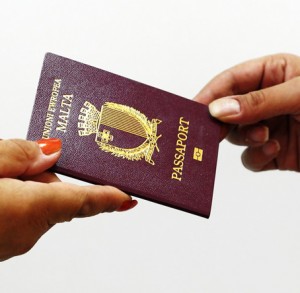Malta Residency or Citizenship?

 The Maltese Government created waves throughout the world on 4th November 2013 with the announcement, during the country’s budget presentation, that they will be selling our Maltese Citizenship for a mere €650,000. Forbes Magazine called the Citizenship Scheme “Controversial” and at face value it may be so, but there is logic to what seems to be complete madness for some.
The Maltese Government created waves throughout the world on 4th November 2013 with the announcement, during the country’s budget presentation, that they will be selling our Maltese Citizenship for a mere €650,000. Forbes Magazine called the Citizenship Scheme “Controversial” and at face value it may be so, but there is logic to what seems to be complete madness for some.
Firstly, although the country has a stable economy, it still has a substantial deficit so any additional investment (and an estimated €30 million in revenue is expected in first year of the Malta Individual Investor Programme) which will help to reduce this deficit should be welcomed by the Maltese people and the European Union. Secondly, if any Government wanted to get itself on the map and appeal to high net worth individuals living outside of the European Union such a scheme is definitely extremely attractive. Thirdly, the scheme will also be tactically utilised as what we call a loss leader in business, to attract these non-European individuals to the Malta Global Residence Scheme introduced recently where the applicant will be able to claim a special tax status of 15%.
The scheme, which is being implemented through the Malta Individual Investor Programme – better known as Malta IIP – is a programme that, whilst attracting guaranteed investment into the country, also enables the Maltese Government to reduce the burden on the Maltese tax payers. During the budget speech, the Maltese Government announced the removal of stamp duty for first time buyers on their first €150, 000 spend. They also reduced the tax percentage on those that earn between €19,501 and €60,000, from 32% to 29%.
From a marketing point of view, it seems that the Government of Malta has made an exceptional move to place Malta on the high net worth map and getting their finances in order. The question is: which scheme should one choose between the Global Residence Programme and the Investment by Citizenship Scheme if you have in excess of €650, 000 in your pockets and are a Non-European.
Being a citizen of the European Union may exclude you from certain taxation schemes but it opens the doors to Europe – where the advantages may be undeniably endless, however the Malta Global Residence Programme has much to offer and can be considered as having the best of both worlds, literally.
As mentioned above, the special tax status of 15% on foreign source income remitted to Malta with a minimum liability of €15, 000 is – for starters – very attractive. A further advantage of not needing to spend any particular time actually residing in Malta (as long as one does not reside anywhere else in the world for more than 183 days) is also a bonus. But why would you want to become a resident or a citizen of Malta and not want to live on our beautiful Islands?
Something that may keep you from staying away is the fact that if you decide to apply for Global Residence Programme, you are obliged to either rent or purchase Malta real estate. The threshold for renting a property in Malta is that of €9600 per annum, whereas if you rent in Gozo or in the South of Malta the threshold is that of €8750 per annum. If you choose to purchase real estate in Malta the threshold is that of €275, 000 whereas if you buy a home in Gozo or in the South of Malta the threshold is that of €220, 000.
There is a list of advantages to living in Malta. To mention a few: 300 days of Sun, beautiful Mediterranean Sea, five star accommodation, excellent cuisine, hospitable population, practically no crime rate, multi-lingual where English is spoken fluently, large expatriate community and a buoyant real estate Industry, not to mention Malta is the Mediterranean hub for Finance, iGaming and Technology.
We’d recommend that you speak to an Authorised Registered Mandatory for fiscal advice, however, when it comes to real estate, we recommend that you deal with a reputable Malta real estate agent.